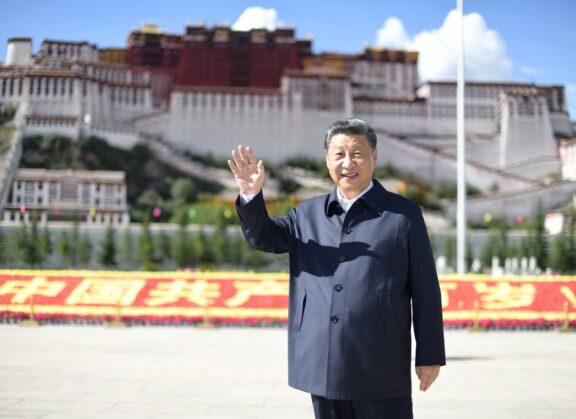Africa-Press – Lesotho. What’s in a phone call? Well, when it’s from China’s leader to the presidents of Germany and France then maybe it’s something beyond idle chit-chat. And, when it comes on the heels of the G7 summit which Xi Jinping dismissed as international politics of the past, then it is more than a matter of curiosity.
And when what’s on offer is reportedly a deal between China and Europe’s two most powerful economies to collaborate on African development then it’s time to sit up and listen.
The G7 summit held in mid-June, which brought Japan and the traditional Western powers to the UK, was billed as the restoration of the American role as the fulcrum of global power and a renewal of the unity of purpose between the seven industrial states.
One point of discussion at the meeting was China and its growing global reach. While G7 leaders all agreed they need to address Beijing’s expanding influence around the world, they did not reach any consensus on how to meet that challenge.
The Chinese side, for its part, was not impressed. After the Cornwall summit, the embassy in London said: “The days when global decisions were dictated by a small group of countries are long gone.
We always believe that countries, big or small, strong or weak, poor or rich, are equals, and that world affairs should be handled through consultation by all countries.
So why would China approach two G7 countries to discuss matters related to Africa? Well, it is possible to assess this initiative from a number of angles: First, it’s not anything new either for China or Africa.
Beijing has expressed interest in joining up with European countries to collaborate on a wide range of sectors in African development since 2010 (and a few examples even earlier).
A number of projects in water resources, public health, and infrastructure flowed from this initiative, though efforts to bed down security cooperation remained limited to multilateral peacekeeping.
Moreover, the notion of trilateral cooperation has featured at least as far back as the 1970s when the French government sought to mobilize Arab oil wealth – the so-called ‘petrodollars’ – to French knowledge and networks in Africa to promote economic development.
Second, China’s outreach to France and Germany could reflect this reduction of Chinese development finance, stemming from a new sense of risk when addressing debt-exposed African economies reeling from the pandemic or countries in a crisis like South Africa.
Cooperation would enable China to continue its high visibility involvement in development but at a lower cost and at the same time would produce opportunities for technical exchanges, skilling up the Chinese development agency and making inroads into sectors previously outside of China’s project support.
And third, this could represent a geopolitical rationale, which is an expression of Beijing’s desire to encourage avenues of cooperation that foster divisions within G7 countries.
The drive for ‘partnerships of mutual respect’ rather than Western-style alliances is strongly articulated in Beijing and perhaps this form of trilateral cooperation is an example of this thinking.
Whatever this purpose – or purposes – behind outreach by China to European powers, it is an initiative that is worth watching and reflecting upon. African sensibilities and interests are at stake here and, as always, it is important to keep an eye on the great powers. Chris Alden is a professor of international relations at the London School of Economics and Director of LSE IDEAS.
For More News And Analysis About Lesotho Follow Africa-Press





![THE RULING PARTY [ RFP] MPs DEFECT TO DC AND BAP THE RULING PARTY [ RFP] MPs DEFECT TO DC AND BAP](https://static.africa-press.net/lesotho/sites/62/2026/02/sm_1771363891.997697-218x150.jpg)
